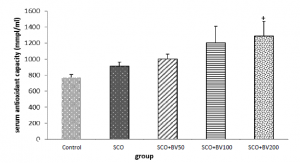7.3.2 – General Targets for Neurotransmitters
α2C adrenoreceptors are one of the more involved α2 adrenoreceptors with respect to CNS function and diseases, having been found in several diseases with symptoms similar to Alzheimer’s. Inhibition of these receptors has been shown to have anti-depressive as well as anti-psychotic drug action, through the removal of negative feedback effects on noradrenalin, serotonin and dopamine via downstream receptors. As it affects so many neuroreceptors, some of which like serotonin, which has been shown in previous paragraphs to be good to improve cognition, as well as acetylcholine, it may be a good target for inhibition for Alzheimer’s, as it can help not only in terms of increasing individual targets but it has the potential to, especially in the case of the two aforementioned drugs, increase the net effect by allowing for an increase in multiple neurotransmitters which can work in tandem to improve cognition.
Rather than focusing on the anticholinergic effects of targets like scopolamine, some researchers choose instead to focus on alternative functions of it, such as its tendency to increase oxidative stress in the brain. Two example studies, one by Hajihosseini et al. and the other by Raibei et al. look at the effects of beet root extract and chamomile extract respectively for their antioxidant components to see what effects they could have on scopolamine-treated mice. The beet root extract mice were tested using a water maze task, finding that the groups that were treated only with scopolamine spent significantly less time than the control group, with the beetroot treatment mice producing significant changes over the control group at 100 and 200mg/kg of extract, while 200mg/kg also produced significantly increased antioxidant capacity as per their tests on the serum of those mice. Meanwhile, the chamomile extract mice was tested using motor learning skills and balance on the rats using their ability to stay on top of a rotating rod device. They were split into 6 groups, with a control group, a group that received only the scopolamine, a group that received only chamomile, and the rest receiving scopolamine with a varying amount of chamomile. They found that scopolamine significantly reduced the ability to balance on the rotating rod, while also finding that even 200mg of chamomile extract significantly changed the ability of both scopolamine rats and healthy rats over their counterparts (scopolamine only rats and control rats respectively). These studies both suggest some potential benefits to antioxidants with regards to maintaining memory and motor skills in an Alzheimer’s model, which may have some interesting applications due to the ease of obtaining some of these antioxidants.

